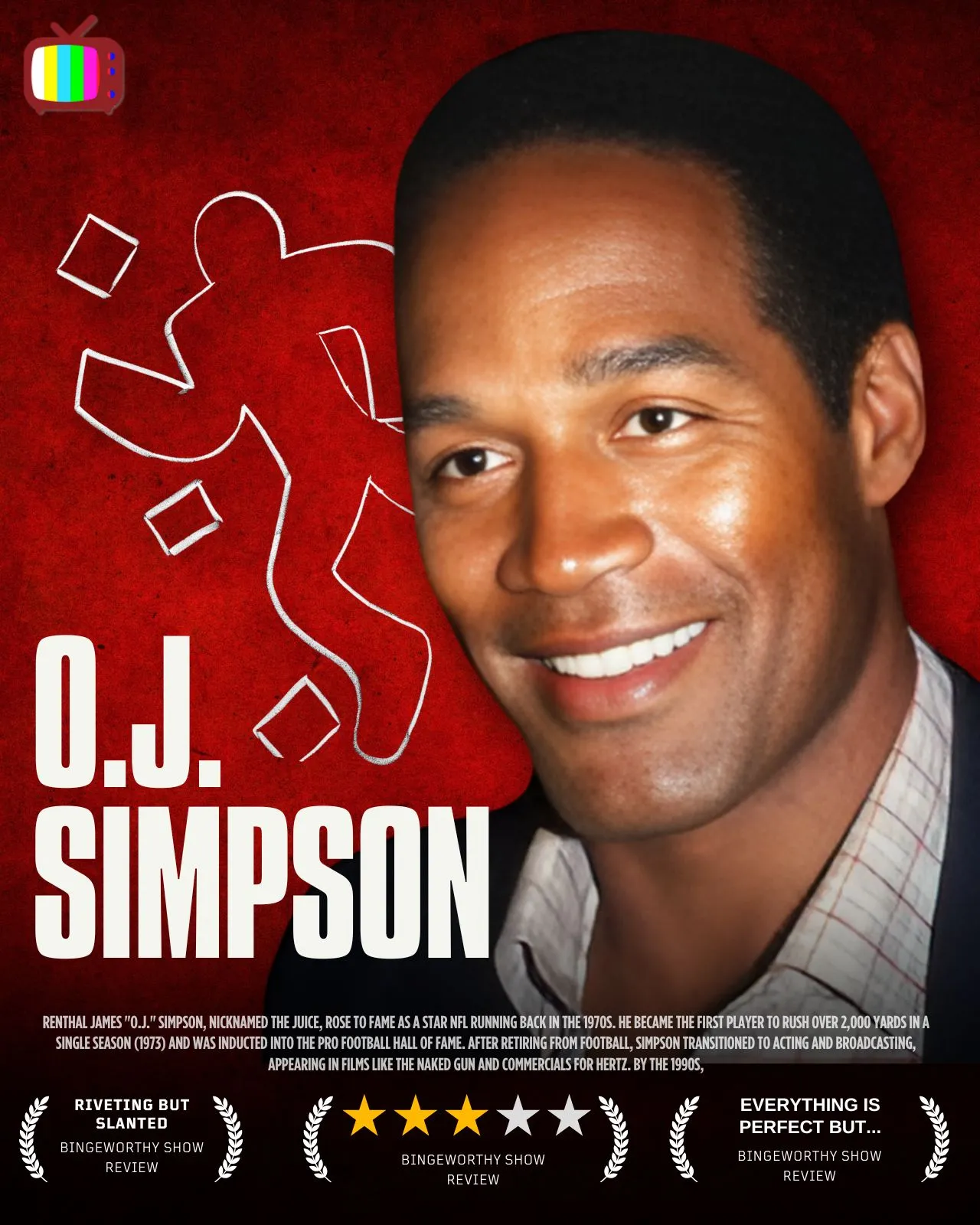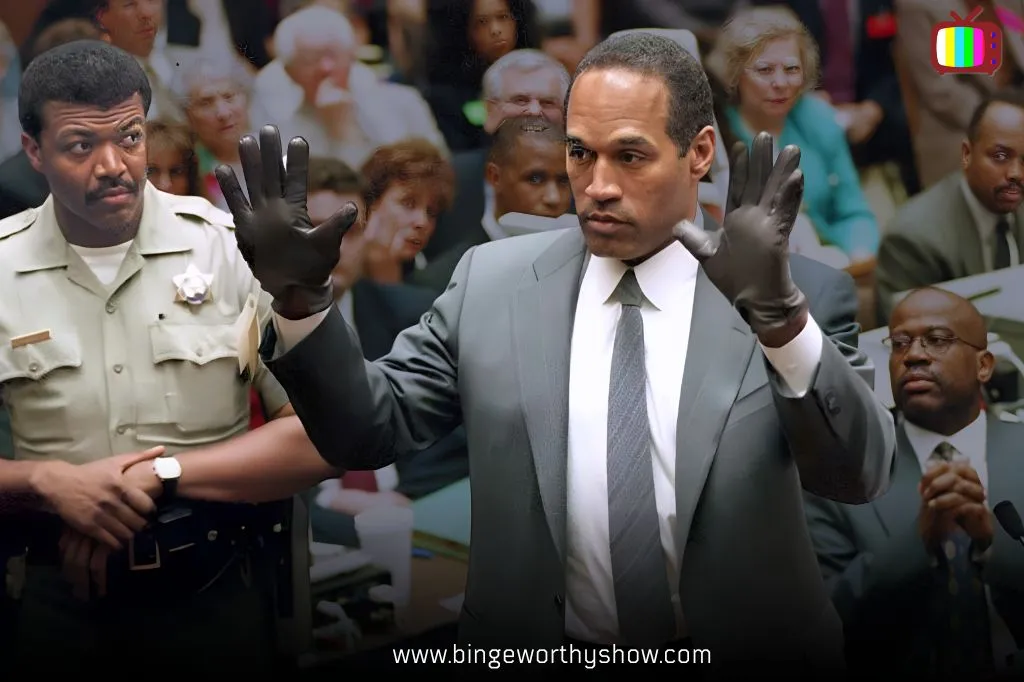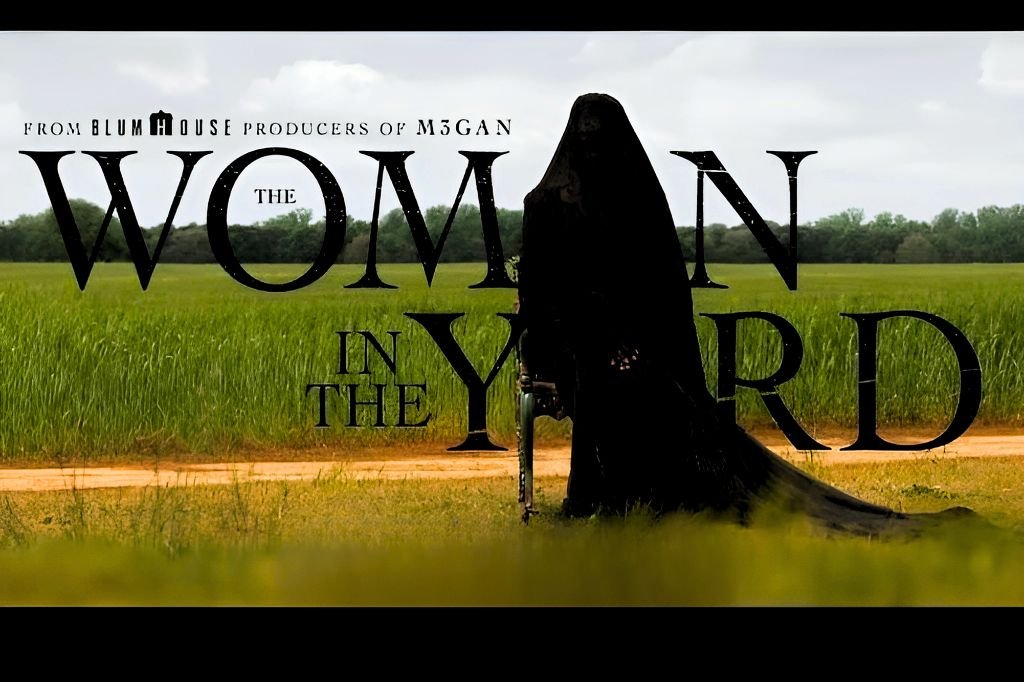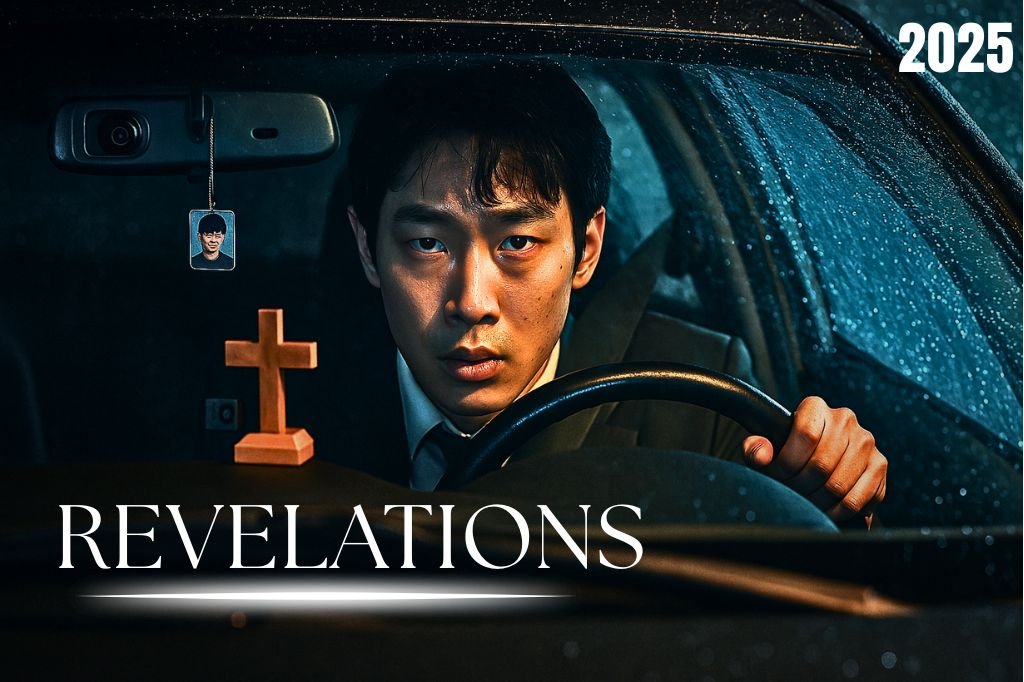Now Reading: American Manhunt: OJ Simpson Netflix Series Review (2025)
-
01
American Manhunt: OJ Simpson Netflix Series Review (2025)
American Manhunt: OJ Simpson Netflix Series Review (2025)

Netflix’s documentary American Manhunt: OJ Simpson hits close to home for me. It takes me back to a time before the internet, when TV and newspapers shaped everything people knew. Back then, my friend was murdered, and like O.J.’s case, the truth never came out. There were rumors, theories, and whispers, but no one was ever charged. The case just… closed. No answers, no justice. Years later, it still haunts me how easily the system can fail—whether in a global spectacle like O.J.’s trial or in quiet, personal tragedies like my friend’s. Both stories force us to ask: Why do some crimes vanish into the noise of bias, money, or apathy? Let’s unpack OJ Simpson’s trial—not just as true-crime drama, but as proof of how justice can slip through the cracks, leaving families and friends forever searching for closure.
Table of Contents
Who was OJ Simpson?
Orenthal James “O.J.” Simpson, nicknamed The Juice, rose to fame as a star NFL running back in the 1970s. He became the first player to rush over 2,000 yards in a single season (1973) and was inducted into the Pro Football Hall of Fame. After retiring from football, Simpson transitioned to acting and broadcasting, appearing in films like The Naked Gun and commercials for Hertz. By the 1990s, he was a beloved American celebrity—until June 12, 1994, when his ex-wife Nicole Brown Simpson and her friend Ronald Goldman were brutally murdered, thrusting Simpson into the center of a legal and cultural firestorm.
What Happened That Day?
On the night of June 12, 1994, Nicole Brown Simpson and Ronald Goldman were stabbed to death outside Nicole’s Brentwood townhouse. The timeline of events remains critical:
- 9:45 PM: O.J. and houseguest Kato Kaelin return from McDonald’s.
- 10:15 PM: A neighbor hears Nicole’s Akita dog barking incessantly, later leading to the discovery of the bodies.
- 10:40–10:55 PM: Kato hears loud thumps on his guesthouse wall; a limo driver arrives to take O.J. to the airport but sees a shadowy figure (6’0”, 200 lbs) entering the house.
- 11:45 PM: O.J. boards a flight to Chicago.
- 12:10 AM (June 13): The bodies are found.
By noon on June 13, O.J. is questioned but not arrested. Four days later, after a low-speed Bronco chase televised nationally, Simpson surrenders to police.
Main Characters
Nicole Brown Simpson: O.J.’s ex-wife and victim. Their relationship was marred by domestic violence, including a 1989 no-contest plea from O.J.
Ronald Goldman: A waiter and friend of Nicole, murdered alongside her.
Johnnie Cochran: Simpson’s charismatic lead defense attorney, known for the phrase, “If it doesn’t fit, you must acquit.”
Marcia Clark & Christopher Darden: Prosecutors criticized for their unfocused strategy and mishandling of evidence.
Mark Fuhrman: LAPD detective who found the bloody glove at O.J.’s estate. Later exposed for racism, undermining his credibility.
Kato Kaelin: O.J.’s houseguest, whose testimony about the “thumps” became pivotal.
Judge Lance Ito: Presided over the trial, which lasted 11 months.
Robert Kardashian: Simpson’s friend and defense attorney, later famous for his reality-TV family.
Timeline of Events
June 1994: The Bronco Chase
- O.J.’s Suicide Note:
“Don’t feel sorry for me. I’ve had a great life. P.S. I’m sorry for the real killer out there.”
Millions watched the chase, including Black communities cheering, “Run, Juice, run!” and white families gasping, “How is this real?”
January 1995: The Trial Begins
- Race in the Courtroom:
Prosecutor Christopher Darden warned against showing Fuhrman’s racist tapes: “It’ll make Black jurors hate us.” Cochran shot back, “This is about truth, not hate.”
June 1995: The Glove That Didn’t Fit
- O.J.’s Performance:
Struggling to squeeze his hand into the blood-crusted glove, Simpson muttered, “Too tight.” Jurors later said this moment sealed their doubt.
October 3, 1995: The Verdict
- Black America: Church bells rang in Harlem; students at Howard University cheered.
- White America: Office workers cried; Nicole’s family sat stone-faced.
- Simpson’s Whisper to Cochran: “We did it.”
1997: Civil Trial
- Goldman Family’s Fury:
After the $33.5 million verdict, Fred Goldman spat, “O.J.’s still playing golf. My son’s still dead.”
2007: The Confession That Wasn’t
- If I Did It:
In his Fox TV interview, Simpson smirked, “Hypothetically, if I did it… here’s how.” The Goldmans rebranded it as “Confessions of the Killer.”
What most people miss about the Case
- The Dog’s Role: Nicole’s Akita led neighbors to the crime scene. Its barks were cited as evidence of the murder timeframe.
- The Trial’s Location: Prosecutors claimed moving the trial to downtown L.A. was logistical, not racial—but the jury (8 Black, 1 white, 2 Hispanic, 1 mixed) reflected the shift.
- Limousine Driver’s Testimony: Allan Park, the driver, noted O.J. was “sweating profusely” and saw a shadowy figure—details downplayed by prosecutors.
- The Bloody Sock: Defense experts argued the sock’s bloodstains were planted, pointing to EDTA preservatives.
- Jason Simpson Theory: Some speculate O.J.’s son, Jason (with a history of violence), committed the murders, but evidence is circumstantial.

- Post-Trial Fallout: Over 80% of Americans now believe O.J. is guilty, per polls.
- Nicole’s 911 Calls: Years before her death, she frantically told dispatchers, “He’s back! O.J.’s going to kill me!” Jurors never heard these tapes.
- The Jury’s Isolation: Sequestered for 265 days, they grew numb. One juror admitted, “We just wanted to go home. The evidence was too messy.”
- O.J.’s TV Interview (2006): When asked why he wrote If I Did It, Simpson shrugged, “I’m broke. The Goldmans took everything.”
- The “Dream Team’s” Strategy: Defense attorney Robert Shapiro later confessed, “We turned the trial into a soap opera. Truth didn’t matter—winning did.”
- The Aftermath for Ron Goldman: His sister, Kim, wrote in *Can’t Forgive, “O.J. partied in Vegas. My brother’s ashes sat on my shelf. Where’s the justice?”
Netflix’s American Manhunt: The OJ Simpson Trial: The Questions That Still Haunt Us
The Documentary’s Unanswered Core
Netflix’s American Manhunt: The OJ Simpson Trial revisits the 1994 murders of Nicole Brown Simpson and Ronald Goldman with chilling detail, featuring firsthand accounts from detectives, lawyers, and journalists. Yet, even with its deep dive, the central question lingers: Did OJ Simpson kill Nicole and Ron? The documentary doesn’t surprise—it reaffirms what we already knew: the trial was never just about guilt. It was about race, fame, and a justice system buckling under the weight of both.
The Trial’s Baffling Dual Reality: Criminal vs. Civil
The American legal system’s duality in Simpson’s case remains staggering. In 1995, a criminal jury acquitted him of murder, citing “reasonable doubt” fueled by Mark Fuhrman’s racism and the infamous glove that “didn’t fit.” But in 1997, a civil jury found Simpson liable for the wrongful deaths of Nicole and Ron, ordering him to pay $33.5 million to their families.
- Criminal Trial: “Not guilty” ≠ innocent. It meant prosecutors failed to prove guilt beyond a reasonable doubt.
- Civil Trial: “Liable” meant a preponderance of evidence (over 50%) suggested Simpson caused their deaths.
Two courts, two verdicts—but as Fred Goldman (Ron’s father) bitterly noted: “O.J. walks free, but the world knows the truth.”
Mark Fuhrman: The Unrepentant Figure
The documentary revisits Mark Fuhrman, the detective who found the bloody glove at Simpson’s estate. Decades later, Fuhrman remains defiant. When asked about his racist remarks caught on tape (using the N-word 41 times), he shrugs: “I’m not perfect, but I didn’t plant that glove.” His poker face and unflinching demeanor mirror the trial’s central tragedy: a broken system where flawed actors became symbols of larger injustices.
- Prosecutor Marcia Clark’s Take: “Fuhrman handed the defense their narrative. He wasn’t just a bad cop—he was proof the LAPD couldn’t be trusted.”
- The Irony: Fuhrman’s role tainted the evidence, but the glove, blood matches, and timeline still point to Simpson.
O.J.’s Final Chapter: Death and Unanswered Questions
On April 10, 2024, O.J. Simpson died of prostate cancer at 76. His last public words, shared two months prior on X (formerly Twitter), were eerily detached: “Hey, let me take a moment to say thank you to all the people who reached out to me.” No apology. No confession. Just the same performative charm that once made America love him.
- Nicole and Ron’s Legacy: Their families still grieve. Nicole’s sister, Tanya Brown, wrote: “We lost her twice—once to violence, once to a trial that turned her into a spectacle.”
- O.J.’s Legacy: A man who escaped prison for murder but died serving time for armed robbery. As journalist Jeffrey Toobin noted: “He died as he lived—a paradox.”
Why This Case Still Hurts
- The Victims Faded: Nicole and Ron became footnotes in a saga about race and fame. Their photos rarely headline documentaries—O.J.’s mugshot does.
- Money ≠ Happiness: Simpson’s fortune couldn’t buy him peace. His final years were spent in debt, estranged from peers, and haunted by public hatred.
- Inequity’s Shadow: The trial exposed how race and status warp justice. As Johnnie Cochran once said: “The system isn’t blind—it’s blinkered.”
The Enduring Lesson
The O.J. Simpson case isn’t a true-crime story—it’s a mirror. It reflects our obsession with celebrity, our distrust of institutions, and our inability to reconcile race and justice. As American Manhunt reminds us, the evidence screams Simpson’s guilt, but the trial screamed louder about America’s fractures.
Nicole and Ron deserved better. So did we.
Final Verdict
In the end, the only thing that ever fit OJ Simpson was the role of a man forever running—from the truth, from himself, from a past that finally caught up.



























